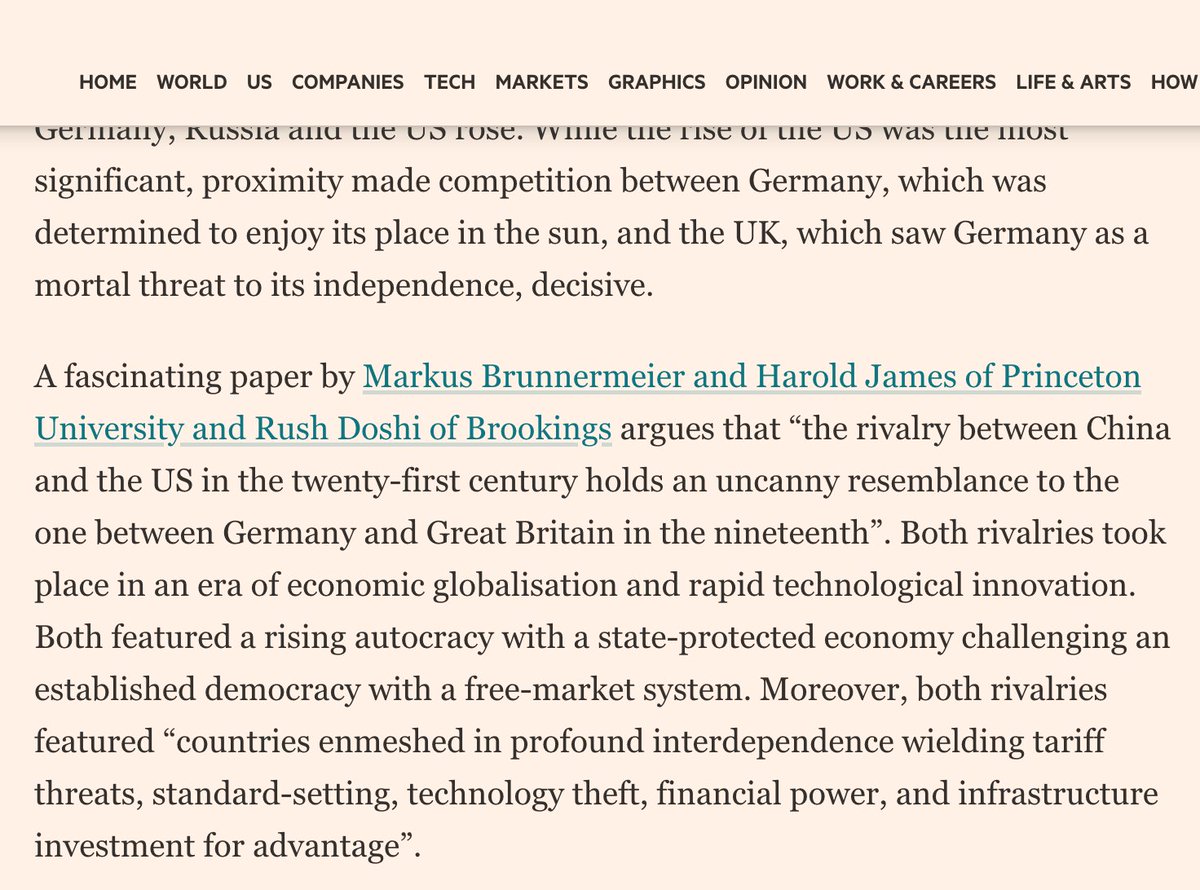Wolf& #39;s FT column draws on 2018 Brunnermeier, Doshi & James paper comparing US-China competition to pre-1914 Anglo-German rivalry. Although there are some similarities they are rather overstated, in particular the systemic and geo-economic opposition. 1/ https://bit.ly/2XvCMWq ">https://bit.ly/2XvCMWq&q...
Imperial Germany was an autocratic state governing an increasingly liberal-bourgeois economy & civil society, riven by distributional conflict. Not only did it lack the state-economy unity of today& #39;s CCP, it actually became *less* protectionist in the 1900s and 1910s. 2/
Pre-WWI Germany had lower tariffs than many states (there were only five more free trade-oriented countries in Europe); the paper cites French historian Henri Hauser on a global German economic plot, but his analysis was a wartime polemic and exaggerated German intentions. 3/
The paper also draws parallels between the use of financial pressure tools then and now. But in the world of 1870-1914, financial pressure was used on colonial, semi-sovereign, and minor states. Both Germany & Britain were imperial powers & didn& #39;t do this to each other. 4/
Imperialist & #39;geo-economics& #39; before 1914 was real, but for two European powers of the rank of Britain and Germany, it worked hierarchically as much as laterally. Insofar as lateral competition was real, the real Eurasian threat faced by Britain was imperial Russia not Germany. 5/
There was no widespread use of economic sanctions like there is today. The comparison of Belt & Road to the Baghdad Railway is interesting. But as Brunnermeier et al note, China& #39;s BRI is already much larger and more successful than Berlin& #39;s abortive trans-European railroad. 6/
What comparisons between China and imperial Germany also miss is the unique globality of US military power. Moreover, the Chinese government seems a less panicky, more coherent actor than the Kaiserreich, but a lot hinges on their domestic room for maneuver. 7/
It& #39;d be interesting to hear how China experts assess intra-Chinese pressures, but it seems Wolf et al& #39;s comparison w/ Germany overstates the systemic opposition of the pre-1914 era, while its suggestion of future conflict understates current room for Chinese flexibility. 8/
All of which is to say, at tense times like this it is important to emphasize cooperation and not overstate inherent enmities, certainly not without taking the considerable differences between the 1910s and 2020s into account. Here& #39;s Wolf& #39;s column. Fin/ https://on.ft.com/3c7b3R3 ">https://on.ft.com/3c7b3R3&q...

 Read on Twitter
Read on Twitter


